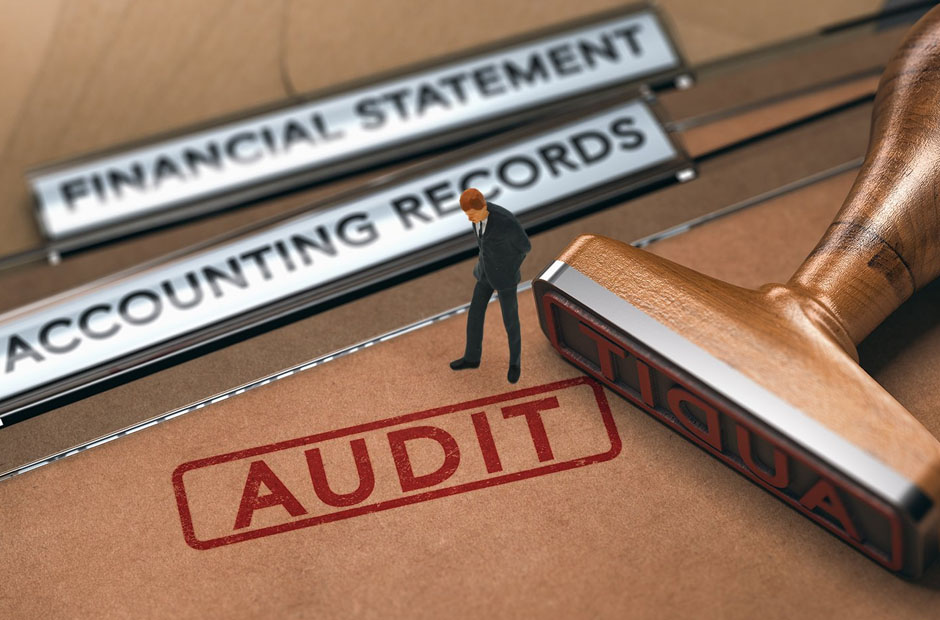Now Reading: Ensuring Accuracy in Business: The Importance of a Financial Statement Audit
-
01
Ensuring Accuracy in Business: The Importance of a Financial Statement Audit
Ensuring Accuracy in Business: The Importance of a Financial Statement Audit

Operational precision is a cornerstone of business success and sustainability. In the dynamic world of finance, ensuring accuracy in financial reporting and adherence to fiscal regulations is paramount. One pivotal tool aiding this process is the financial statement audit, an integral element that is often misunderstood or overlooked by enterprises.
What is a Financial Statement Audit?
A financial statement audit is an objective examination and evaluation of the financial statements of an organisation. This audit aims to give stakeholders, such as investors, clients, and regulatory bodies, assurance that the presented financial reports are free from material misstatement, whether due to fraud or error. At its core, this process involves an independent auditor assessing the financial records and operations to achieve a fair representation of a business’s financial position and performance over a specific period.
The Role of a Financial Statement Audit in Business
A financial statement audit serves several vital roles in any business setting. Primarily, it enhances the reliability of financial statements, reinforcing stakeholder confidence and decision-making. It also assists in detecting and deterring potential mismanagement, fraud, and financial inaccuracy, thereby safeguarding organisational assets.
From a compliance perspective, the audit facilitates adherence to accounting standards and regulatory requirements, which is crucial for maintaining corporate reputation and reducing the risk of legal penalties. Moreover, an audit can provide insightful recommendations for improving financial controls and operational efficiencies, contributing to better business practices and management strategies.
Benefits of a Regular Financial Statement Audit
Regularly conducting a financial statement audit offers numerous advantages that extend beyond compliance. For one, it provides an independent perspective on the financial health of a business, offering invaluable insights into areas for improvement. This audit can also contribute to enhancing the credibility of financial information, which is fundamental in attracting investment and finance opportunities.
An audit’s investigative nature champions the discovery of irregularities and inefficient practices, thus encouraging a culture of transparency and accountability within the organisation. It catalyses the refinement of internal controls, which then fosters a disciplined approach to accounting and record-keeping.
Elements of a Successful Financial Statement Audit
A successful financial statement audit is contingent upon several elements. First and foremost is the independence and objectivity of the auditor, which ensures that the examination remains free from biases and conflicts of interest. Equally important is the meticulous planning and execution of the audit process, which involves understanding the business, risk assessments, and determining the scope and nature of audit procedures.
The use of appropriate and up-to-date auditing standards is crucial in guiding the auditor to produce reliable results. Moreover, auditors must possess professional scepticism and diligence, allowing them to challenge assumptions and examine evidence thoroughly.
Challenges in Conducting Financial Statement Audits
Conducting a financial statement audit is not without challenges. Complexities in modern financial transactions, evolving accounting standards, and the introduction of new technologies all present potential hurdles for auditors. There’s also the challenge of maintaining impartiality and the pressure to overlook discrepancies to preserve client relationships.
Changes in the regulatory landscape require that auditors continuously update their knowledge and skills. Additionally, auditors must navigate cultural nuances and ethical considerations when working with international businesses or diverse teams, ensuring that audits conform to global standards and practices.
The Future of Financial Statement Audits
The future of financial statement audits is shaped by technological advancements and the changing business environment. Automation, data analytics, and artificial intelligence are transforming the audit process, allowing for more in-depth analysis and real-time auditing capabilities. As a result, auditors can leverage these tools to enhance the quality and scope of their work.
Furthermore, the integration of environmental, social, and governance (ESG) criteria into business reporting is presenting new dimensions for financial audits. With stakeholders increasingly focused on sustainable practices, auditors will need to expand their remit to include these considerations.
Conclusion
The significance of a financial statement audit cannot be overstated in the realm of accurate business reporting and sound financial management. It serves as a critical check and balance for companies, ensuring the fair and accurate presentation of financial positions. A thorough and well-executed audit provides confidence to all stakeholders and promotes an ethos of responsibility and ethical conduct in the financial reporting process.
As regulations tighten and the business landscape becomes more complex, the financial statement audit will grow in importance. Businesses must embrace regular audits as essential practices that contribute to their longevity and prosperity. In doing so, they not only comply with statutory requirements but also lay the foundation for transparency, credibility, and enduring success.
Enlisting Professional Audit Services
In light of these considerations, companies should seek to engage with reputable audit firms that can deliver high-quality audits. By employing experienced professionals with a mastery of audit best practices, businesses can ensure that their financial statements meet the highest standards of accuracy and reliability, thus positioning themselves strongly in the eyes of investors, clients, and regulatory authorities.





















